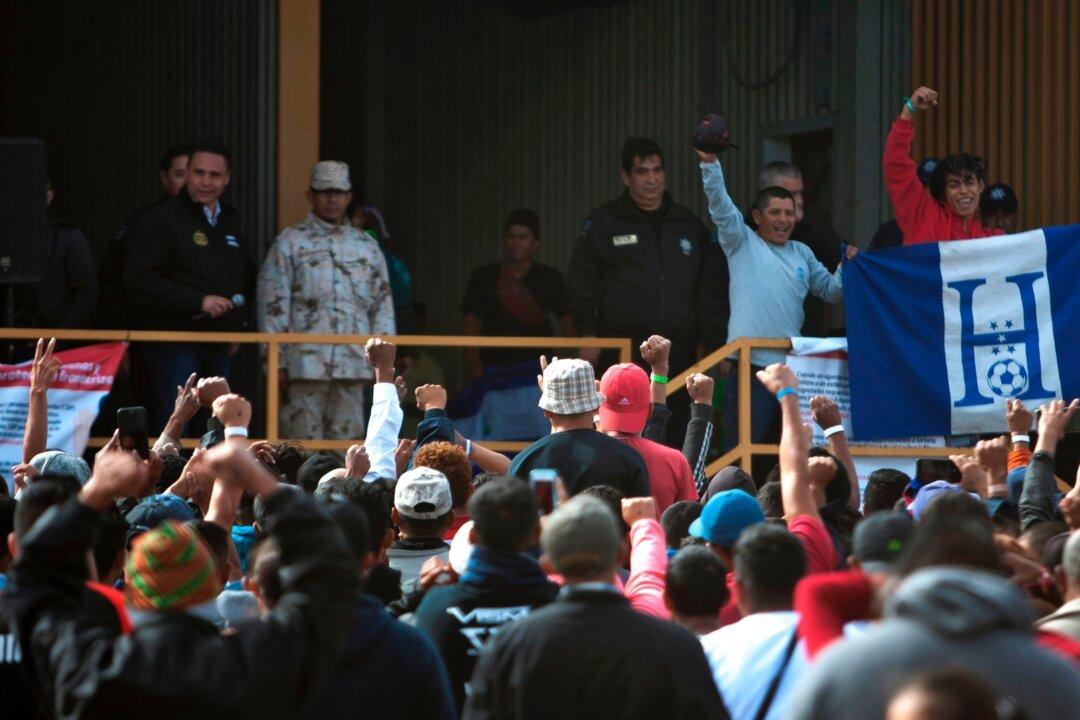PIEDRAS NEGRAS, Mexico—A caravan of 1,600 Central American migrants was surrounded on Feb. 6 by Mexican authorities in an old factory a short distance from Texas, where they hoped to seek asylum even as U.S. authorities sent extra law enforcement and soldiers to stop them.
In his State of the Union speech on Tuesday, Feb. 5, President Donald Trump warned of migrant caravans and accused Mexican cities of busing migrants to the border “to bring them up to our country in areas where there is little border protection.”





